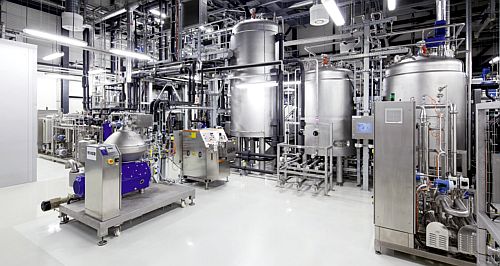Make / Model Search
News - General News - FuelsFerrari, Porsche could win EU e-fuel exemptionEU moves to address push from Germany, Italy for e-fuels to sidestep 2035 ICE ban14 Mar 2023 UPDATED: 14/03/2023
THE European Union’s proposed 2035 internal combustion engine (ICE) ban could include an allowance for engines using synthetic e-fuels to continue after unexpected last-minute objections prevented a final vote on the matter from going ahead.
Germany has been offered a declaration by the EU – with no guarantee of success – that would include the potential for e-fuels to play a role after the sale of ICE-powered new cars is outlawed by the bloc in 2035.
The proposed ICE ban has been met by criticism from Porsche and Ferrari, which are pushing for e-fuelled engines to be exempt for use in their performance models.
Although niche manufacturers, Ferrari and Porsche have taken the fight to their prospective national governments in seeking the exemptions and Germany has been particularly vocal in its push for e-fuel considerations, pursuing exemptions for internal combustion engines that run on CO2-neutral fuels after 2035.
Opposition led to a scheduled final vote on the ICE ban – which was due to take place on March 7 and previously considered a mere formality – being delayed amid fears Germany could abstain from voting, alongside fellow opponent Italy.
Were e-fuels to be permitted, new ICE vehicles sold after the cut-off date would have to somehow be unable to operate on fossil-derived petrol and diesel, with which e-fuels are designed to be either chemically compatible or molecularly identical.
While 2035 ICE ban is aimed at electrifying Europe’s automotive fleet, Germany believes e-fuels offer a carbon-neutral option for combustion engines.
"The commission should come forward with a proposal (on) how e-fuels can be used, or how combustion engines which are run with climate-neutral fuels can be organised," said German transport secretary Michael Theurer.
At a recent meeting in Stockholm, Mr Theurer reportedly told EU transport and energy ministers that while Germany is convinced electric vehicles are the “way to go”, other CO2-neutral options should be considered.
"We need hydrogen (fuel cell) technology and also e-fuels, especially in heavy vehicles, in truck transport," he was quoted as saying.
The EU law related to the 2035 ban requires the European Commission to propose how vehicles running on CO2-neutral fuels can comply with climate goals if they are sold beyond the ban date.
"I think the discussion is not closed, even though the vote was taken," said EU transport commissioner Adina Valean.
According to Automotive News, talks are set to take place between Italy, Germany and the European Commission in the coming weeks to establish an agreement.
The e-fuel technology involves producing synthetic fuel using captured CO2 emissions, balancing out the CO2 emitted during operation and enabling combustion engines to be operated into the future with simple modifications.
Captured carbon dioxide is combined with hydrogen that was split from water, creating synthetic hydrocarbon fuel in a process reportedly powered by renewable energy.
Porsche has put its money where its mouth is, investing with e-fuel manufacturer HIF Global in synthetic fuel production plants around the world – including Australia – as it looks to find a way to prevent its iconic 911 model from going electric.
Last year Porsche announced plans to invest $100 million dollars in a HIF e-fuel plant in Tasmania that is expected to be in full swing by 2026.
Ferrari says it is also investing in e-fuel technologies, as well as clean lubricants and coolants, enabling the firm to “reduce emissions while continuing to use internal combustion engines that preserve our heritage”.
E-fuel technology holds the potential to allow “historic” or traditional performance vehicles, of which both Porsche and Ferrari have many, to be operated on a carbon-neutral basis.
The technology not only offers promise for road-going combustion engines, but also for the Formula One racing series which is set to adopt synthetic fuels from 2026.
While Porsche and Ferrari take the fight to the EU, other EV-focused manufacturers have criticised the late charge.
“I would call it now almost pathetic,” said Polestar CEO Thomas Ingenlath in an interview.
“The industry and the politicians should finally give that very clear signal about what is the journey ahead.”
BMW has also warned against banning fossil-fuelled car sales, suggesting a hard phase-out date could remove “cheap cars” from the market.
“We do not want cars to be taken away out of the base segment, politically that is super dangerous," said BMW CEO Oliver Zipse.
“As a politician I would be mega-careful … because you are taking away cars by regulation.
"If you all of a sudden make car ownership only for rich people, it's a dangerous thing.”
While BMW expects at least 50 per cent of its vehicle sales to be zero-emission by 2030, the firm has not confirmed when it will cease production of internal combustion engines.  Read more |
Click to shareGeneral News articlesResearch General News Motor industry news |












Facebook Twitter Instagram